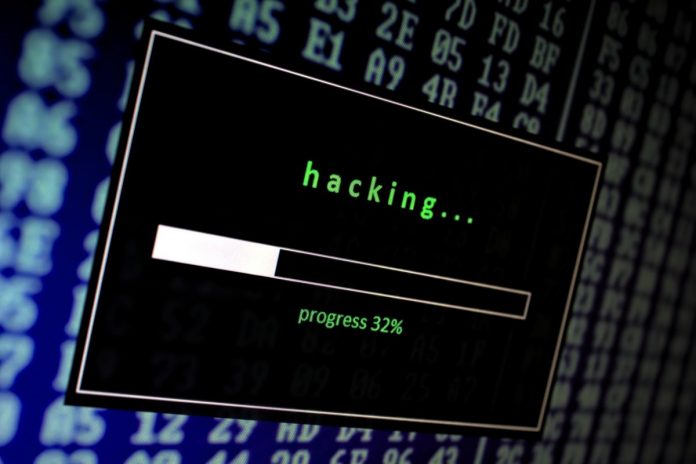As the government pushes forward proposals to increase its surveillance powers and to repeal the human rights act, Adjacent Digital Politics examines the impact on civil liberties…
No one likes the idea of being spied on. I get affronted if someone looks through my front window when passing the house, let alone going through my personal data. In the digital age snooping is much easier. Your emails can be read, your texts can be passed to government agencies, and I’m pretty sure sting operations worthy of a spy novel happen from time to time in the name of national security.
Privacy is a funny concept. We live in a time of global presence. Social media means those pictures you posted of your 15-year-old self with terrible dress sense and awful hair are going to haunt you forever. We have the ability to immortalise every aspect of our lives for eternity, or at least for as long as the internet exists.
However, there is something distasteful about having privacy taken forcibly from you, particularly if you have done nothing wrong, which is exactly what the government wants to do.
Home Secretary Theresa May has always been fairly vocal about surveillance laws. With polling still taking place on the 7 May, she was keen to tell the media about her plans for increasing government snooping powers if the Conservatives got elected. It’s been just over a week since that surprising majority win, during which time the government has been quick to announce a few proposals that are, frankly, concerning.
The Snoopers’ Charter is not a new thing. It was put forward by the Conservatives and was set to become law in 2014. However, it was blocked by then coalition partners the Liberal Democrats, who clearly saw the lunacy of what was being proposed. With them out of the way the law, which is officially known as the Draft Communication Data Bill, has found its way back onto the agenda.
So why is this law so disturbing? For a start, if it was passed it would force British internet service providers to retain huge amounts of data on their customers. The government and security services would be able to access that information whenever they want to.
You may be of the opinion you have nothing to hide so why should you care that the government wants to rifle through a thousand pictures of your cat/dog/child/significant other, but think for a moment what that actually means. It’s the equivalent of the government letting themselves into your home when you are at work or shopping and rummaging through your personal belongings.
National security is, obviously, important. There is no doubt the government needs to be able to investigate people or groups that pose a risk to our country. However, there is something wholly unsettling about this law.
Speaking in January David Cameron said there should be no form of communication the government was unable to read. Again, think about what that actually means. Why should the government be able to read your texts or your emails. Why should they be able to see what you are buying, reading, watching? What is to stop the system being abused? The media was raked over the coals for phone hacking, but how is this any different? Government has a responsibility to maintain civil rights for all its citizens. This law runs the risk of treating everyone as a criminal until it is proven otherwise. Guilt should not be assumed and then proven after the fact.
The problem is the government plays to our fear. Terrorism is, and remains, a very real threat, but it seems as if this is the excuse for stripping away privacy.
Additionally, if Cameron follows through on his pledge made in January it could see internet security measures such as encryption outlawed or heavily regulated. This could leave data insecure.
As if all of that wasn’t bad enough, reportedly the government also amended the Computer Misuse Act covertly. This granted law enforcement agencies immunity from prosecution for a variety of activities conducted during surveillance operations, which would under normal circumstances be illegal.
The amendment was passed in March but came into law this month. It allows people considered to be criminals to have their laptops, smartphones, tablets, and other digital systems hacked. This comes back to the earlier point of guilt being assumed before it is proven. Just because the guy living two doors down is a bit odd doesn’t mean the police can go rifling through his mail. Why, then, should they be able to hack his email? The law has to protect the public, but it also has to protect the individual, particularly the innocent individual. Perceived guilt is not the same as actual guilt, which leads to the question: what criteria will be in place to decide who should be hacked and who is regulating these guidelines?
Privacy International was one of many organisations to express its concern at this measure. Deputy Director Eric King said: “The underhand and undemocratic manner in which the government is seeking to make lawful GCHQ’s hacking operations is disgraceful.
“Hacking is one of the most intrusive surveillance capabilities available to any intelligence agency, and its use and the safeguards surrounding it should be the subject of proper debate.
“Instead, the government is continuing to neither confirm nor deny the existence of a capability it is clear they have, while changing the law under the radar without proper parliamentary debate.”
The amended document reads: “In the absence of an amendment, the UK (from individuals up to big business) is exposed and law enforcement agencies will not have the necessary powers to intervene early enough in order to prevent potential criminal damage.”
However, the Home Office denied the changes, stating: “There have been no changes made to the Computer Misuse Act 1990 by the Serious Crime Act 2015 that increase or expand the ability of the intelligence agencies to carry out lawful cyber crime investigation.
“It would be inappropriate to comment further while proceedings are ongoing.”
Then came the startling revelation that the government also has plans to abolish the Human Rights Act (HRA) and replace it with a British bill of rights. HRA covers a number of civil rights, including the right to life, the prohibition of torture or mistreatment, and pivotally the right to a fair trial, in which you are innocent until proven guilty.
Aside from the astounding moral repercussions repealing the HRA and replacing it with this other bill, the move is also riddled with political issues.
The argument for getting rid of it is that it does little to protect liberty or the safety of British people. It enables judges, who are not chosen by popular vote, to make substantive judgements about policies. However, lets not forget the fact the HRA also allows people to seek judgement against injustice in the UK via the European Court of Human Rights, an unbiased channel that cannot be influenced by the state.
The main issue with scrapping the law is the fact it would cause significant issues in relation to devolution and the administrations in Northern Ireland and Scotland. The European Convention on Human Rights (ECHR) was central to the 1998 Good Friday agreement and is enshrined in the Scotland Act of 1998, which was used to set up the devolved Scottish parliament.
SNP foreign affairs spokesman Alex Salmond said: “We support the human rights act because we like people being able to sue governments against things like the ‘bedroom tax’, and have basic human rights we should not be frightened of.
“So I don’t think the Scottish parliament, under the Scottish National Party, has any chance whatsoever of giving legislative consent to such an insane proposal.”
If I was the Conservative government, planning to bring in £12bn worth of austerity measures that people could complain infringed their human rights I would probably try to scrap the Human Rights Act as well.
While I understand the need to protect the country from those who seek to do it damage, I also wonder if this government is going to far with its plans. There is a fine line between national security and removing civil liberties. I worry the government is in danger of stepping over that line, and I worry what it means for the future if the state is given free rein to invade privacy without fear of redress.












I do not believe that this Government has any qualms at all about over stepping the mark because it does not believe in Human Rights for the majority.
The issues range from zero hour contracts to no privacy for our data (DVLA selling contact details to private companies is a classic example of low level but pernicious abuse of powers). Human rights allow people to voice an opinion, campaign to effect change, peacefully protest, have the right to a fair trial, protects the vulnerable and is what makes a country civilised. The covert changes that this Government is so fond of are those that were rife in Nazi Germany in the 1030’s, and are rife in many other ‘rogue’ states throughout the world. This Government only got 24% of the possible vote and yet it feels it has the God given right to destroy our democracy. Once constituencies are reduced in number we will never again have anything but a Tory Government, so the controversy surrounding 3 million UKIP votes having no representation will look like a storm in a tea cup. What a shame that so many self interested and ignorant people simply could not or would not see the larger picture.
Sadly, while there is weak opposition and beauty contests are more important than heart felt political principles this country can expect more and more erosion of liberty and eventually life. Goodbye NHS, goodbye quality education for the working person, goodbye tolerance and fair play.
If you have nothing to hide then you have nothing to worry about. Civil liberties are protested about by cardigan wearing real ale drinking guardian readers who pretend to be socialist while drinking their pinot grigio. Whats wrong with DVLA selling data, their is nothing pernicious about it. The NHS will never disappear, it might change but it will still be free at the point of use when necessary. If UKIP had got the representation that nearly 4million votes warrant then we really would be in the brown smelly stuff.